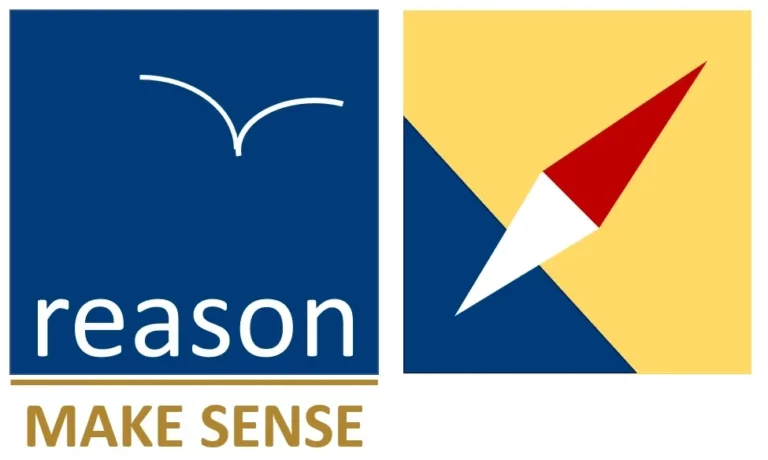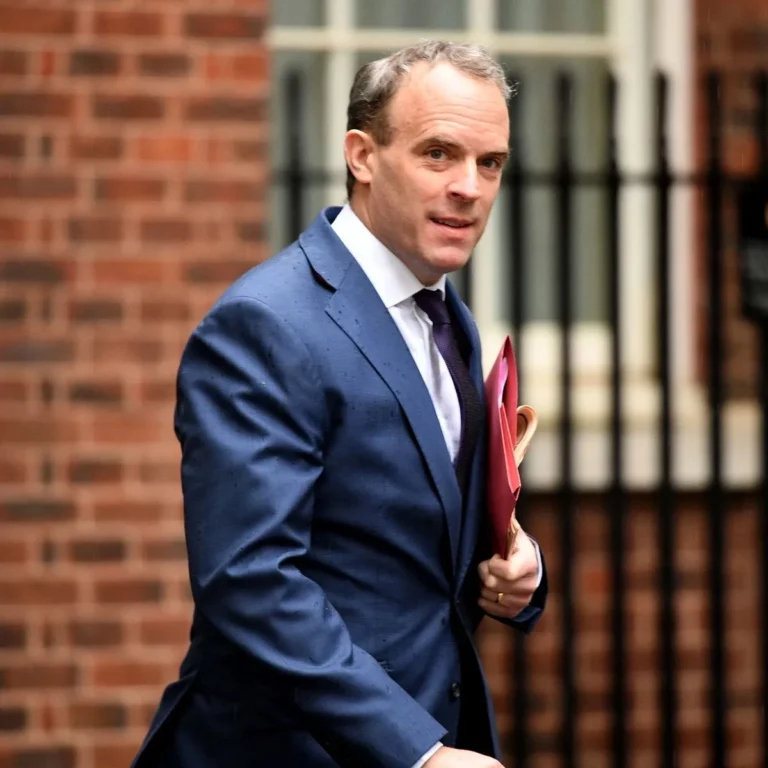From Neoliberal Nostalgia in Sovereigntist Clothing to a Revival of Ordo-Liberalism?
A Response to Lord Frost & ARC’s Paper “Building Economic Dynamism: The Choices We Face (Feb 2025) – How ARC’s Economic Vision Paradoxically Recalls the German Ordo-Liberal Tradition at the Very Source of the EU Architecture
Reason Praxis | Make Sense in Economics

Lord Frost’s paper, Building Economic Dynamism: The Choices We Face, identifies key issues of Western economic stagnation but paradoxically advocates for a structured market-driven sovereignty that aligns with German Ordo-liberalism, despite his opposition to the EU model. His call for deregulation and market-led growth contradicts his vision of national economic sovereignty, as open markets inherently limit national control, leading back to the very structured liberal economic order he critiques. Ultimately, Frost’s argument highlights a deeper paradox, i.e. that modern economic models, whether neoliberal, socialist, or corporatist, all stem from the same liberal intellectual tradition, making true national economic autonomy impossible without transcending these frameworks altogether.
I. Neoliberal Nostalgia: The Flawed Economic Prescription
The paper’s core economic argument rests on the belief that Western stagnation stems primarily from state overreach, excessive taxation, and overregulation. This echoes the Thatcherite-Reaganite policy framework, which promoted lower taxes, deregulation, and free-market competition as the path to prosperity. However, his analysis fails to engage with the real consequences of neoliberalism over the past four decades:
- Financialisation and deindustrialisation: Free-market policies encouraged the offshoring of industrial production, leaving Western economies dependent on financial speculation and service industries. The loss of productive capacity weakened wage growth and contributed to economic inequality.
- Monopolisation and rent-seeking: Rather than fostering competitive dynamism, deregulation often led to corporate concentration, where a few dominant firms stifled innovation and extracted rents from the economy.
- Labour market instability: While Frost criticises low investment and stagnant productivity, he does not address how labour market deregulation weakened worker protections, leading to precarious employment and wage stagnation.
Neoliberal economics, rather than fostering resilience, has hollowed out many Western economies, making them overly reliant on financial markets and external supply chains. This call for a return to this model overlooks the structural weaknesses it created, making his argument more nostalgic than practical.
II. The Tailored Sovereigntist Clothing: A Contradictory Economic Framework
While Lord Frost’s economic proposals align with globalist free-market ideology, his broader political vision calls for a return to national sovereignty, cultural cohesion, and a strong democratic nation-state. This introduces a fundamental contradiction:
- Free markets vs. national sovereignty: A genuinely open-market approach requires capital mobility, free trade, and global financial integration, which often erode national control over economic policy. If the UK, for example, pursues complete market liberalisation, it will remain vulnerable to external economic forces, undermining the very sovereignty Lord Frost seeks to restore.
- State capacity vs. small government: Lord Frost demands a stronger nation-state, yet he simultaneously advocates for reduced taxation and deregulation, which would weaken the very state institutions needed to enforce sovereignty, regulate markets, and maintain public infrastructure.
- Immigration and workforce resilience: While Lord Frost critiques mass migration as an economic crutch, his solution – greater economic liberalism – historically relies on a flexible, migrant-driven labour market to sustain growth. A genuinely nationalist approach would require a stronger industrial policy and workforce development strategy, neither of which are prioritised in his framework.
The fusion of **free-market principles with nationalist rhetoric** in this argument creates the appearance of a contradictory and ultimately unworkable policy framework. A free-market economy without national controls becomes dependent on global capital, resulting in a kind of economic anarchy governed by the law of the strongest, while a strong national state requires strategic social and economic planning rather than laissez-faire deregulation.
III. The Unintended Consequence: How Lord Frost’s Vision Unwittingly Aligns with German Ordo-Liberalism
If Frost’s argument fails due to its internal contradictions, an alternative might appear to be a revised form of Ordo-liberalism. This theory originally emerged as a third way between laissez-faire capitalism and state socialism in pre- and post-war Germany. Rooted in the Freiburg School of economics in the 1930s, Ordo-liberalism was developed by economists such as Walter Eucken and Franz Böhm in response to the failures of both unregulated capitalism and excessive state control.
As Lord Frost is probably aware, given his detailed understanding of the EU’s German-driven economic construction from its inception and strong support for Brexit, he should also recognise where Ordo-liberalism sits within the broader German economic tradition and influence. It was the foundation of Germany’s post-war Soziale Marktwirtschaft (social market economy), which balanced free enterprise with state oversight to ensure market competition, prevent monopolies, and promote social stability. However, what is often overlooked is that Ordo-liberalism was also instrumental in shaping the socio-economic order that facilitated the rise and reorganisation of the Third Reich, and later, the post-war European economic architecture.
Despite being framed as a moderate economic doctrine, Ordo-liberalism has always functioned as a hyper-organised form of liberal sovereignty, effectively legitimising strong state structures within a fundamentally market-driven framework. This places Lord Frost in an ironic position:
- He opposes the German economic model and the EU’s centralised influence, yet his own economic prescriptions indirectly lead back to an Ordo-liberalist framework.
- By rejecting neoliberal excesses and socialist alternatives, he inadvertently resurrects a system that Germany used both before and after WWII to stabilise its economy within a controlled but market-driven order.
- If David Frost truly believes in national sovereignty, which we trust he does, he should acknowledge that Ordo-liberalism ultimately prioritises economic order over genuine national independence, making it an unsuitable solution for the UK’s economic recovery.
Thus, while Ordo-liberalism appears as a pragmatic counterweight to neoliberalism and socialist-Marxist thought, it is ultimately a controlled version of the same ideology, merely cloaked in the guise of stability and regulation. Lord Frost’s framework, despite its anti-EU stance, may inadvertently open the door to an economic model deeply embedded in the very system he critiques.
IV. Further Reflection: The Broader Paradox of Modern Economic Thought
The paradox at the heart of David Frost’s paper is not merely an isolated contradiction in his thinking but a symptom of a larger issue in modern economic debates. If all dominant economic models –neoliberalism, socialism, even corporatism – ultimately stem from the intellectual framework of Liberalism, then every attempt to reform or counteract one aspect of it risks reinforcing another form of the same logic.
This raises deeper questions: Can economic sovereignty truly be achieved within a market-driven framework, or does national economic autonomy inherently require a departure from liberal socio-economic principles? If both unregulated markets and structured market control (as in Ordo-liberalism) lead to dependency on global capital, then what alternative genuinely prioritises national and the Union’s resilience over insiders’ interests?
Lord Frost’s analysis does not fully acknowledge Ordo-liberalism’s historical paradigm, nor does it recognise that the system he critiques and the one he implicitly supports are structurally connected. By calling for economic sovereignty while embracing free-market principles, he places himself in a recurring cycle where the very liberalism he criticises continues to shape his proposed solutions.
Conclusion: The Path Forward
David Frost’s paper makes valid observations about Western economic stagnation and the decline of national resilience. However, his solutions – a return to neoliberal deregulation wrapped in nationalist rhetoric – are fundamentally contradictory. A strong nation-state cannot exist alongside unregulated global capitalism, nor can free markets alone restore economic dynamism.
Instead of oscillating between laissez-faire economics and nationalist protectionism, the West must develop an alternative model that prioritises genuine economic sovereignty. A return to Ordo-liberalism is not the answer, as it ultimately maintains the same market-driven logic that Frost criticises in neoliberalism, albeit in a more structured form.
If Lord Frost’s paper inadvertently opens the door to this discussion, then perhaps its greatest contribution lies not in its prescriptions, but in the debate it invites, a debate that must go beyond shifting shades of both neoliberalism and socialist-Marxist thoughts, which come in many hues over space and time but ultimately share the same ideological foundation, and its more orderly in appearances, but equally flawed, Ordo-liberal counterpart.
The West can grow again only if it moves beyond Liberalism and its false oppositions for good, but this is something that neither Locke nor Burke necessarily realised, as they remained within the framework of a system that assumed progress and stability could be achieved without challenging its fundamental premises.
Thank you for your time and interest.
Please join us by subscribing to our Blog. Posts are occasional and written as thoughts come.
Please leave your comment at the bottom of this page to continue the reflection on this post.
If you are looking for a reliable, independent professional consultancy to assist you in getting through the mist and the storm and cutting through an often artificial complexity, please do get in touch with us for an informal discussion, or write to contact @ reasonmakesense .com (please remove spaces)
Get in touch to discuss freely; reason will Make Sense, with you and for you.
A few words about Reason

reason supports Shareholders, Board, C-Suite Executives and Senior Management Team in achieving Business Excellence and Sustainability through our Praxis unique approach.
We Make Sense with you and for you.
We work and think with integrity, are independent and fed by a very broad spectrum of robust information sources, which is certainly one of the rarest and best qualities a consultancy can offer demanding decision-makers willing to overcome challenges and reach impactful, tangible and measurable Business Excellence.
We follow reason, facts, best practices, common sense and proper scientific approaches. This is our definition of professionalism. It brings reliability, confidence and peace of mind.
Please check our offering, subscribe directly on this page, write to contact @ reasonmakesense .com (without the spaces) or click on our logo below to get redirected to our contact form.
Thank you for reading!
Reason Praxis | Make Sense
Excellence & Sustainability
www.reasonmakesense.com
There is nothing wrong in doing things right, first time.
Share this post








